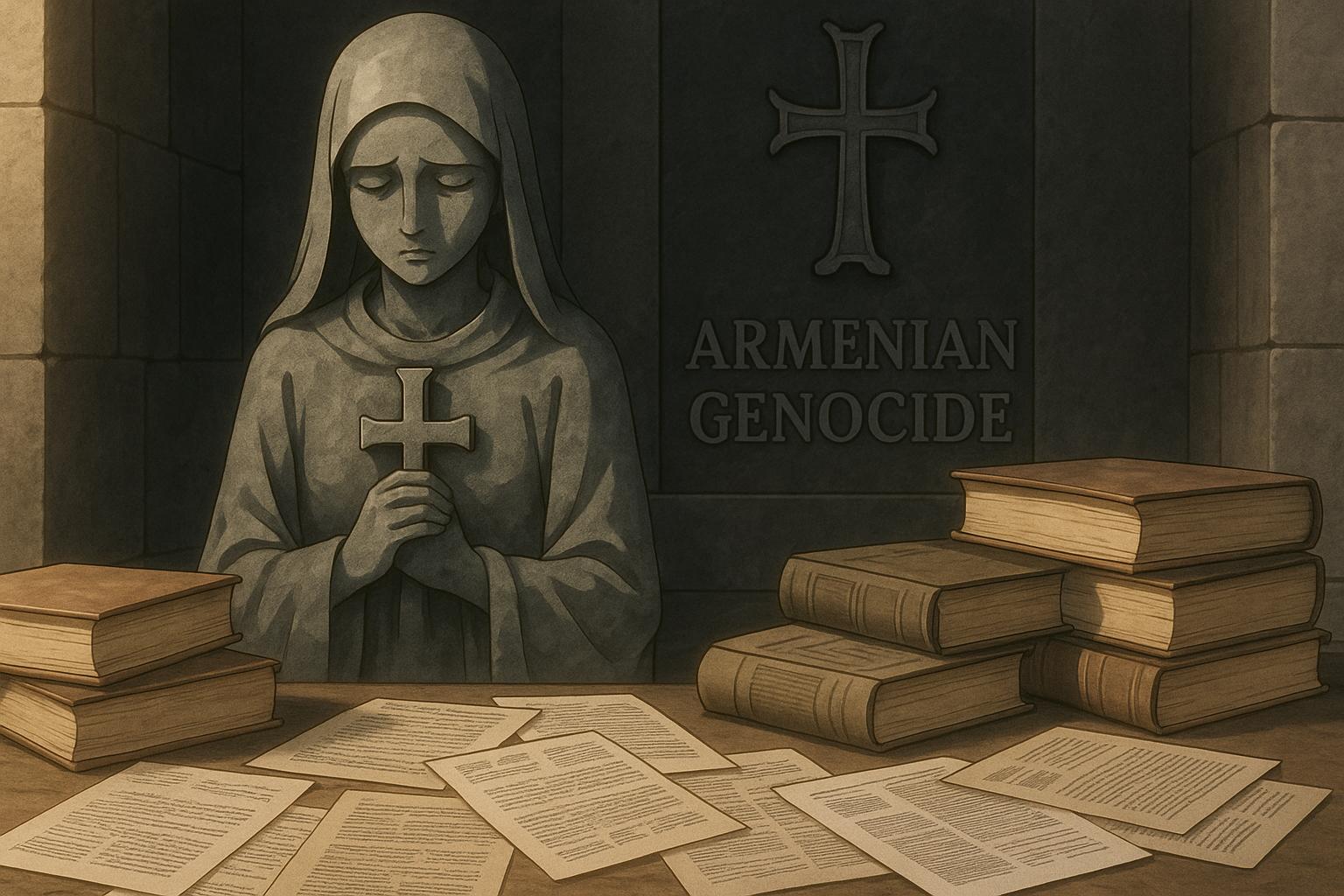YEREVAN, Armenia — The Armenian Genocide Museum-Institute (AGMI) marked a significant milestone with the commemoration of the 110th anniversary of the Armenian Genocide through a three-day international conference held from May 29 to 31, 2025. Titled “A Century of Armenian Genocide Studies: Scholars Reflect on Legacy, Explore New Horizons,” this gathering attracted over 50 scholars from diverse countries, including Armenia, Turkey, and the United States, who brought rich, multilayered insights from disciplines such as history, political science, anthropology, and digital humanities.
The recent conference offered an essential forum to reflect on the evolution of Armenian Genocide scholarship over the last century, while also tackling unresolved historical and methodological questions. Speaking to the attendees, Dr. Edita Gzoyan, Director of the AGMI, noted the importance of revisiting foundational work in the field while seeking to address overlooked areas and prepare for a more interdisciplinary future. She stated, “One of our key goals was to outline future trajectories for the field...fostering rigorous scholarship, preserving memory, and serving as a global hub for academic collaboration and innovation in genocide studies.”
Discussions during the event highlighted a broad spectrum of topics related to genocide studies. The first day featured a panel that examined the development of Armenian Genocide historiography, with prominent scholars like Raymond Kévorkian weighing in on the field's emergence in both Western academia and Armenia. This exploration underscored the necessity for continual reassessment of archival practices and emerging methodologies in response to presented gaps. Scholars also illuminated the foundational role of early documentation efforts, such as the contributions of Aram Andonian and institutions like the Nubar Library in Paris, which have been central to shaping the narrative of the genocide through underutilized archival resources.
As the conference progressed, panels like those focused on the evolution of oral history and its intersection with memory showcased comparative insights from Holocaust studies, emphasising the methodological significance of personal testimonies. For instance, the poignant examination of oral histories revealed the narratives emerging from both witnesses and survivors, reinforcing the concept of narrative as a diagnostic tool for understanding trauma.
On the second day, discussions turned toward innovative methodologies reshaping genocide studies, including the implications of generative artificial intelligence. Presentations such as “The Madagascar Plan: Armenian Case” provided new insights into 1920s resettlement proposals that invoked ideologies comparable to other historical demographic engineering schemes. Furthermore, significant focus was placed on the transfer and transmission of memory within diasporic communities, revealing how intergenerational trauma continues to inform identity and cultural expressions across borders.
The conference also made a notable contribution by addressing gender dynamics within genocide contexts. Scholars like Elyse Semerdjian explored the complex intersections of gendered violence and resistance. These discussions underscored that often women’s experiences during such traumatic events are overlooked, yet their roles in both perpetration and resistance offer critical perspectives for understanding the broader socio-political implications of genocide.
In a powerful conclusion to the conference, participants examined the ideological roots of genocide and reflected on the ongoing relevance of Armenian Genocide Studies as a vibrant interdisciplinary field. Significant contributions pointed to the role of historical revisionism and genocide denial in shaping contemporary narratives, making the ongoing scholarly engagement imperative. The conference culminated in discussions affirming the importance of a collective commitment to justice and truth, with a renewed call for continued research and documentation efforts to ensure future generations understand the atrocities faced by the Armenian people.
As part of its yearly commemoration efforts, the AGMI had earlier inaugurated a temporary exhibition titled "Documenting the Crime: Eyewitness Recorders of the Armenian Genocide," which showcases approximately seventy firsthand accounts of the genocide. This powerful collection serves as irrefutable evidence of the crimes committed during the Ottoman Empire, and will remain open until April 2026, underscoring the museum's mission to foster awareness and recognition of past and ongoing atrocities.
Bedross Der Matossian, a participant from the University of Nebraska–Lincoln, echoed the sentiment that this gathering marks a transformative phase in Armenian Genocide scholarship. Praising the interdisciplinary approaches nurtured by the AGMI, he stated, “The extraordinary research being conducted here clearly demonstrates the institute’s growing importance as a global hub.” His remarks encapsulated the collective enthusiasm and intellectual richness that emerged from the conference, reinvigorating the scholarly community's commitment to advancing understanding of genocide in all its complexities.
📌 Reference Map:
- Paragraph 1 – [1], [2]
- Paragraph 2 – [1], [6]
- Paragraph 3 – [1], [3], [5]
- Paragraph 4 – [2], [4]
- Paragraph 5 – [3], [6]
- Paragraph 6 – [1], [7]
Source: Noah Wire Services
